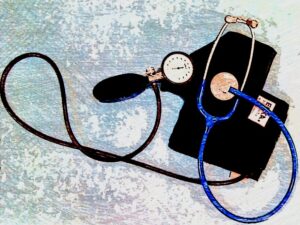 What to Expect at your first visit to the LIPID CLINIC.
What to Expect at your first visit to the LIPID CLINIC.
First consultation:
During the first consultation you will undergo an assessment of Your Health.
The doctor will review your personal and family medical history and go through the list of any medications you’re taking, including prescriptions, over-the-counter drugs, and herbal supplements.
You will be asked about smoking, alcohol consumption, symptoms, lifestyle habits (like diet and exercise), and if you have any past lab test results they will be studied.
They’ll also check how well you’ve been following any dietary recommendations you’ve been given in the past and an initial physical examination will be carried out.
Lab Tests:
You’ll have blood tests to check your cholesterol levels (a full lipid profile). This helps measure things like your “bad” LDL cholesterol and “good” HDL cholesterol etc.
Other tests may be done to check your liver and kidney function, metabolism, and thyroid health.
Second consultation:
Assessing Your Risk:
The clinic will evaluate your risk for heart disease or other cardiovascular problems and based on the lab results, they’ll set specific cholesterol goals tailored to your health needs.
Creating a Treatment Plan:
A personalized plan will be developed for you. This may include:
Advice on improving your diet.
Strategies for managing your weight.
Recommendations for physical activity.
Medication if it’s necessary to help control your cholesterol.
Organizing further testing be it radiological (CAC, Coronary Angiograms) ultrasound (artery evaluations,) or cardiological testing.
What Happens During Follow-Up Visits:
Monitoring Your Progress:
You’ll come back about 4-6 weeks after the first visit (and later as needed) so the clinic can check how well the treatment is working.
They’ll repeat some lab tests to see if there’s improvement in your cholesterol levels and other health markers.
The doctor will review how effective the treatment has been and whether you’ve been able to follow the plan. If needed, they'll make changes to your medications or lifestyle recommendations.

Ongoing Education:
At each visit, they’ll explain more about managing cholesterol and answer any questions or concerns you have.
If necessary, other specialists (like a pharmacist or genetic counsellor) might get involved in your care.
This step-by-step process is designed to help you lower your cholesterol, reduce your risk of heart disease, better your knowledge of health maintenance, and improve your overall health.
Arterial ultasound examination.
